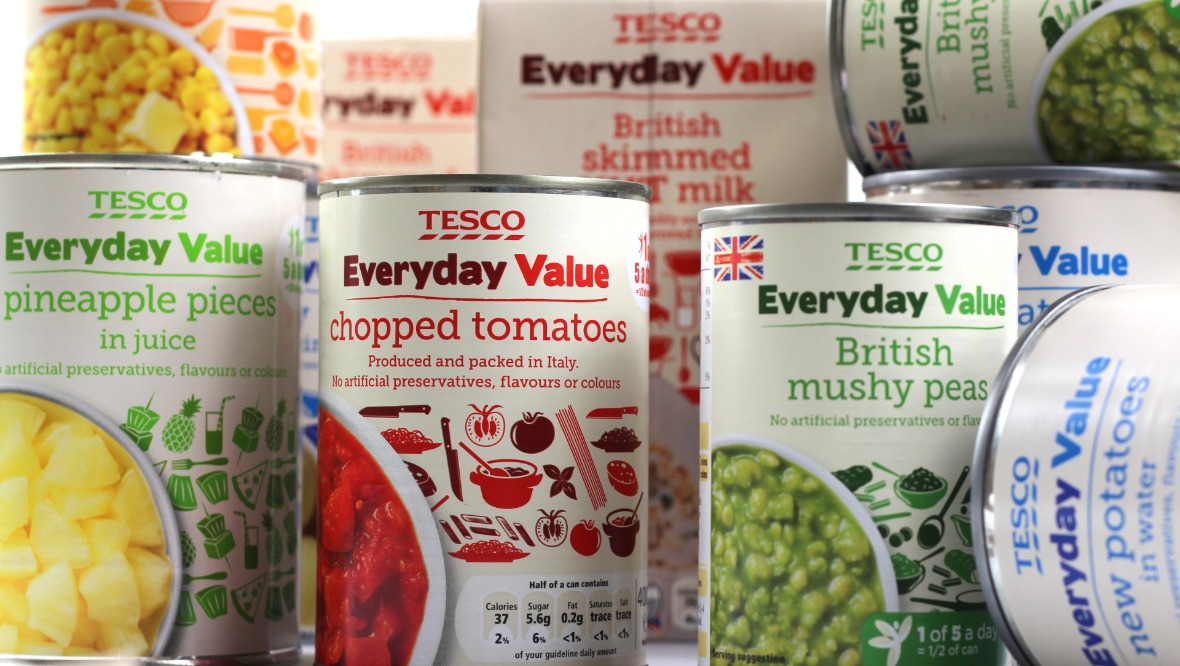Consumers could help themselves cope with rising food prices by choosing value brands in the supermarket, the environment secretary has suggested.
George Eustice told Sky News that rising fertiliser and feed costs had hit the farming industry, partly as a result of soaring energy prices.
He said: “The better news is that we have a very, very competitive retail market with ten big supermarkets and the four main ones competing very aggressively, particularly on some of the lower-cost, everyday value items for households, so things like spaghetti and ambient products – there’s a lot of competition to keep those prices down.
“Where it gets harder is on things like chicken and poultry, and some fresh produce, where those increased feed costs do end up getting passed through the system because these people work on wafer-thin margins and they have to pass that cost through.”
Eustice added: “Generally speaking, what people find is by going for some of the value brands rather than own-branded products – they can actually contain and manage their household budget.
“It will undoubtedly put a pressure on household budgets and, of course, it comes on top of those high gas prices as well.”
Labour’s shadow treasury chief secretary, Pat McFadden, described the comments as “woefully out of touch from a Government with no solution to the cost-of-living crisis facing working people”.
McFadden added: “People are seeing their wages fall, fuel and food costs rise, and families are worried about how to make ends meet.
“It’s time for the Government to get real help to people rather than comments that simply expose how little they understand about the real struggles people are facing to pay their bills.”
The Liberal Democrat work and pensions spokesperson, Wendy Chamberlain, also criticised the comments, saying: “These comments show George Eustice and the Conservatives are living in a parallel universe.
“Families and pensioners who can’t afford their weekly shop need more help, not patronising advice from a clueless minister.
“This is the stark reality of Boris Johnson’s Britain. Oil and gas giants are raking in billions, while families are told to buy value food and pensioners are riding around on buses to keep warm.”
However Eustice’s comments follow widespread advice to consumers trying to cope with the cost-of-living crisis to consider dropping a price level at the supermarket to save money.
Supermarkets separate their products into different categories, from the most expensive premium level through to progressively cheaper branded products, own brand and value lines.
The MoneySavingExpert (MSE) site suggests those struggling with food costs try the “Downshift Challenge” by swapping one of everything to something just one brand level lower, explaining: “If you can’t tell the difference between the lower brand level goods, then why pay more for it?”
MSE said downshifting typically cuts grocery bills by 30%.
Eustice’s comments come as latest figures show shop prices are up 2.7% on last year, marking their highest rate of inflation since September 2011.
Food inflation accelerated to 3.5% in April, up from 3.3% in March, although fresh food inflation slowed slightly from 3.5% last month to 3.4% amid fierce competition between supermarkets which resisted price hikes on everyday essentials, according to the BRC-NielsenIQ Shop Price Index.
Follow STV News on WhatsApp
Scan the QR code on your mobile device for all the latest news from around the country


 iStock
iStock

























